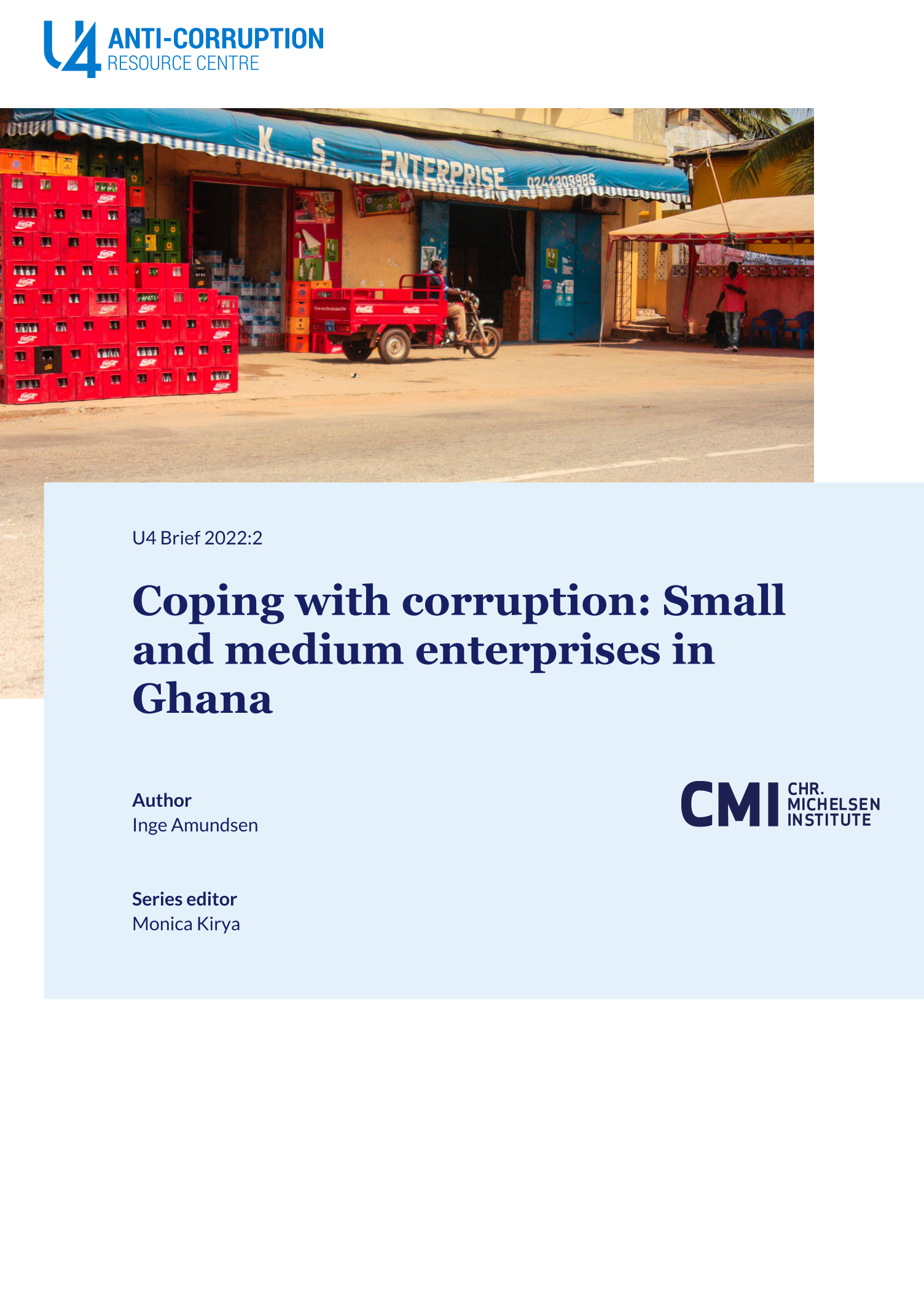Main points
- In Ghana, small and medium enterprises (SMEs) account for 99% of all businesses, and micro-businesses are nearly 80% of the total. The number of SMEs is growing rapidly, especially in the service sector and in wholesale and retail trade.
- Ghana has a comparatively strong legal and institutional framework against corruption, but there are still corruption pressures on enterprises in Ghana and reported weaknesses in the legal and institutional business environment.
- An opinion survey among owners and managers of SMEs in Ghana indicated that many used bribes to avoid taxes and undervalued revenues in order to reduce tax. Access to public utilities such as water and electricity posed the greatest corruption risk.
- Small and vulnerable SMEs in the private consumer market felt the most pressure to use corruption as a survival strategy. SMEs working with multinationals in the export market and SMEs seeking government contracts were generally bigger and stronger, and more often sought to avoid corruption and work together.
- An approach that has sought to change behavioural incentives and create virtuous market incentives for SMEs is the Ghana Supply Chain Development Program, which offers anti-corruption training and certification.
- Most SMEs in Ghana that have enrolled in this programme have reaped benefits and found no drawbacks. However, some reported that other businesses were reluctant to work with SMEs that have anti-corruption certification. Others noted that costs were high in terms of long and cumbersome certification procedures.



